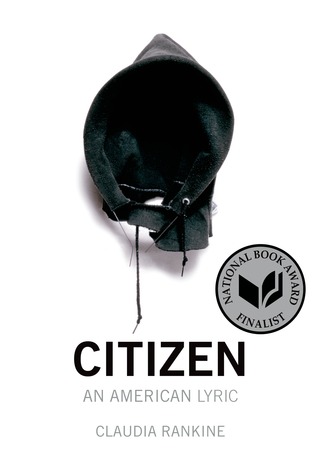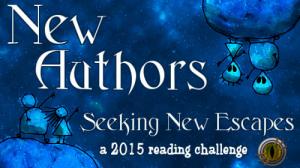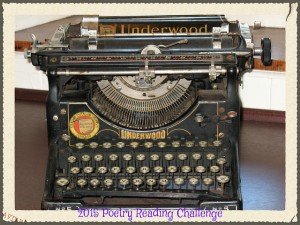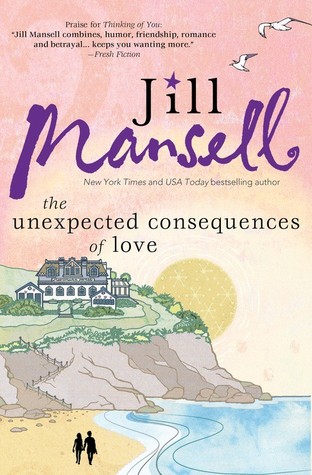 Usually at this time of the year, I’m reading to meet my goal on GoodReads or just trying to finish up the dozen books I’m reading at the moment.Not this year, since I met my goal already.
Usually at this time of the year, I’m reading to meet my goal on GoodReads or just trying to finish up the dozen books I’m reading at the moment.Not this year, since I met my goal already.
In the middle of that, I’m usually scrambling to find a meaningful or needed gift for friends, family, and others. I love giving gifts to those who don’t expect them. I also love sharing some of my favorite books in bookstores and on the Metro, and pretty much anywhere where books can be discussed.
In that spirit, I wanted to provide you with a short list of poetry books I love and why I think you should share them — I’ll even give you a couple hints as to who might love them, even if they say they don’t read poetry.
For the Kids:
1. Ada Twist, Scientist by Andrea Beaty, illustrated by David Roberts, is a perfect introduction to rhyme and poetry, as well as a strong girl who loves science and can do anything. The book will inspire children to get the discovery bug and want to find out for themselves how the world operates and what is going on around them. (my review)
2. Fly with Me: A Celebration of Birds Through Pictures, Poems, and Stories by Jane Yolen, Heidi E.Y. Stemple, Adam Stemple, and Jason Stemple is more than just poetry; it’s a collection and celebration of words and image. This is a collection for bird lovers, young kids learning about nature and birds, and the whole family. Through words and photographs and illustrations, kids can learn about birds in their area, migration, and so much more. (my review)
3. Poe: Stories and Poems by Edgar Allan Poe, adapted by Gareth Hinds, is gorgeous! Any one who knows Poe’s poems and stories will want this in their collection. The graphic novel brings the poems and stories to life. These classics become vibrant, and it will be a great way to show younger readers the gruesome and haunting lines of Poe come to life. (my review)
For Dog/Animal Lovers:
1. Dog Songs by Mary Oliver brings to life the familial relationship people have with their dogs and other animals. There are moments of pure joy and moments of deep sadness. Her poems always carry a universality, and she reminds us that dogs are sentient beings as well. (my review)
For Science Fiction/Science Lovers:
1. Field Guide to the End of the World by Jeannine Hall Gailey is the best collection for those who love science fiction, zombies, apocalypse survival movies, and its a guide written in accessible, fun, and funny poetic verse. You cannot go wrong with this one. Even my book club enjoyed it, and many of them are not poetry readers. (my review)
2. Crumb-Sized: Poems by Marlena Chertock is a pint size collection with a powerful punch that uses science, humor, and space exploration to examine some deep issues, including body image and disability. These poems will have readers looking at space exploration in a more grounded way. (my review)
Grab Bag — Collections for the Adventurous:
1. Saris and a Single Malt by Sweta Srivastava Vikram is a deeply emotional collection about loss and a tribute to a mother gone too soon. Through the various stages of grief, the poet shares her most intimate loss and the anger, sadness, and confusion she felt. Cherish those closest to you. (my review)

3. Citizen: An American Lyric by Claudia Rankine is so powerful that even three years after I’ve read it, I still think about all the cultural and racial questions it raises. The essays, poems, etc. blur the line between I, she, he, etc. to make it a much more universal commentary on how we are all human and connected to each other. (my review)
4. Point Blank by Alan King brings to life the rhythm and funk of life as a young boy growing up black in America where the color of your skin still taints how you are perceived and treated. Although there are some fun moments and great pop culture references, there’s a great deal to think and discuss with others about race in America. There’s a frankness to these poems that cannot be ignored. (my review)
If you have someone who’s hard to buy books for, perhaps they need something like poetry this holiday season.
If you need a different recommendation, feel free to leave a comment and I’ll do my best to offer a collection that would be suit.
I’d love to hear about what books your buying friends and loved ones, too, even if they’re not poetry.





















